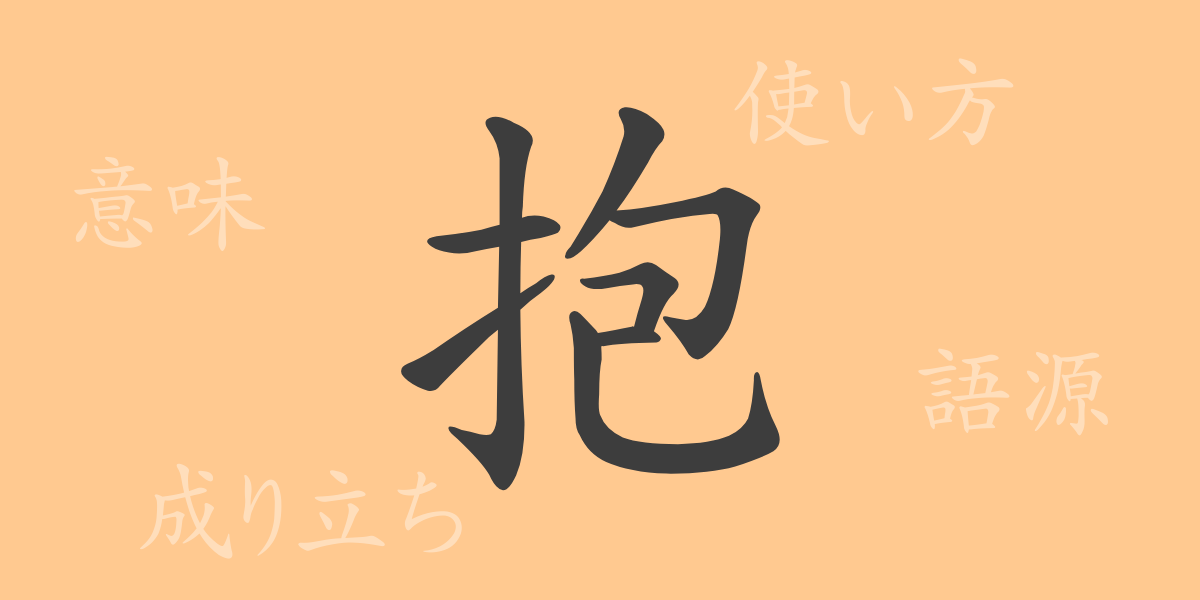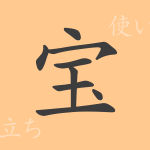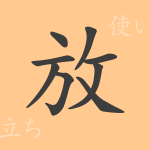The beauty of the Japanese language is reflected in its complex and rich characters. In this article, we spotlight the commonly used kanji “抱” (daku), delving into its profound meanings, usage, and the powerful emotional expressions it conveys. We aim to make the character “抱” (daku) more familiar to our readers by providing a detailed explanation from its origins to its modern-day applications, including idioms and phrases.
The Origin of 抱 (daku)
The kanji “抱” (daku) evolved from ancient Chinese pictograms. Originally, this character depicted the shape of a person’s arms in the act of embracing, symbolizing the action of “holding” or “embracing.” Over time, its form transformed into its current shape, but its fundamental meaning remains unchanged, indicating actions like “enveloping” or “embracing.”
The Meaning and Usage of 抱 (daku)
The character “抱” (daku) is often used to denote physical actions such as “hugging” or “holding.” However, its usage extends beyond the physical. It appears in expressions like “抱負” (houfu) meaning “aspiration” and “抱擁” (houyou) meaning “embrace,” demonstrating its versatility in expressing emotions and intentions. Additionally, “抱く” (daku) is used metaphorically to describe holding something in one’s mind, such as “抱く” (daku) in “期待を抱く” (kitai o daku) meaning “to hold expectations” or “疑念を抱く” (ginen o daku) meaning “to harbor doubts.”
Reading, Stroke Count, and Radical of 抱 (daku)
How is the kanji “抱” (daku) read and structured in Japanese?
- Reading: In on’yomi (音読み), it is read as “ホウ” (hou), and in kun’yomi (訓読み), it is read as “だ・く” (da-ku), “いだ・く” (ida-ku), and “かか・える” (kaka-eru).
- Stroke Count: It has a total of 11 strokes.
- Radical: The radical is “手” (tehen), which signifies “hand.”
Idioms, Phrases, and Proverbs Using 抱 (daku) and Their Meanings
Here are some idioms, phrases, and proverbs that include the character “抱” (daku):
- 抱負 (houfu): This means one’s future goals or resolutions.
- 抱擁 (houyou): This refers to a strong embrace or the act of hugging tightly.
- 胸を抱く (mune o idaku): This means to harbor certain feelings or thoughts in one’s heart.
- 夢を抱く (yume o idaku): This means to have hopes or dreams for the future.
Conclusion on 抱 (daku)
The meanings embedded in a single kanji character weave a rich narrative through its shape and history. The character “抱” (daku) embodies warm human emotions and deep desires, playing an essential role in our daily lives. We hope that through this article, you can appreciate the diverse expressions and emotions that the character “抱” (daku) conveys.

























